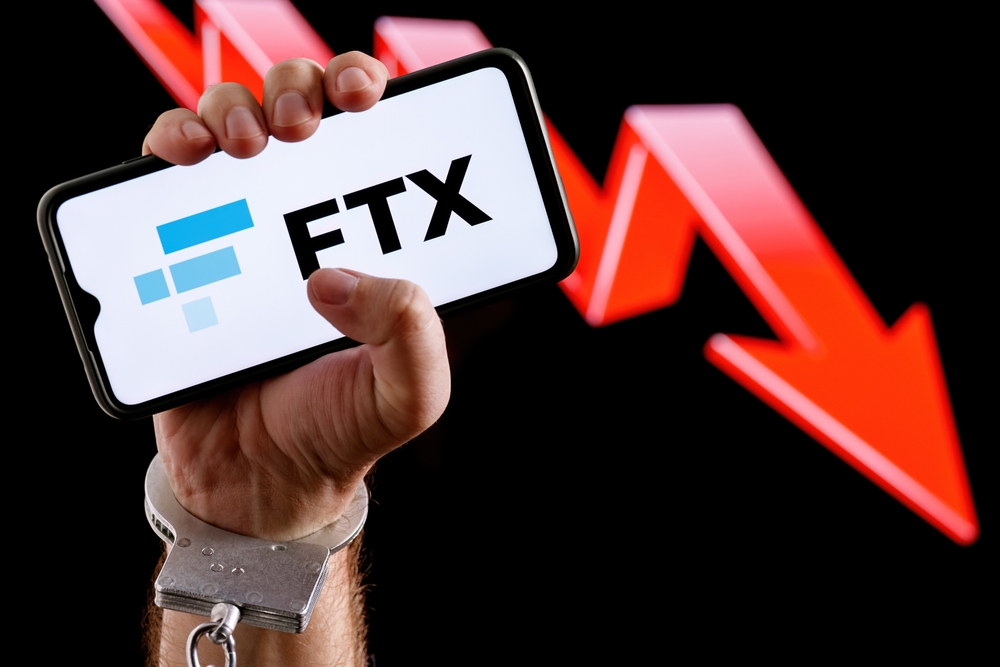How to Protect Yourself from Risk in the Wake of FTX’s Collapse
The collapse of FTX, once a titan in the cryptocurrency exchange world, sent shockwaves across the global financial system. For investors, regulators, and crypto enthusiasts, the fallout served as a stark reminder of the inherent risks associated with digital assets. 
As the dust settles, it is crucial to adopt strategic measures to safeguard your financial interests and mitigate exposure to potential risks in the volatile cryptocurrency market.
Understanding the Ripple Effect of FTX’s Collapse
FTX’s demise was not an isolated event; its implosion had widespread consequences for investors, stakeholders, and the broader cryptocurrency ecosystem. To effectively protect yourself, it is vital to grasp the cascading risks such incidents introduce:
- Investor Losses: Billions of dollars in customer funds were wiped out, leaving countless investors in financial ruin.
- Market Instability: The collapse eroded trust in cryptocurrency platforms, resulting in price fluctuations across major cryptocurrencies.
- Regulatory Backlash: Governments and regulatory bodies worldwide accelerated efforts to impose stricter controls on the crypto sector.
The lessons learned from FTX emphasize the importance of vigilance, diversification, and a deeper understanding of crypto operations.
Strengthen Your Due Diligence Practices
Investing in the cryptocurrency market demands rigorous due diligence. Here’s how you can improve your research and analysis:
- Evaluate Platform Credibility: Examine the background, leadership, and operational transparency of the platforms you use. Platforms should disclose their reserves and adhere to industry best practices for security.
- Scrutinize Financial Health: Review audits, financial statements, and third-party assessments. Be wary of entities with opaque operations or questionable solvency.
- Understand Tokenomics: If investing in specific cryptocurrencies or tokens, research their utility, supply mechanisms, and underlying technology.
Engaging with independent analysts and leveraging reputable resources can provide valuable
insights that enhance decision-making.
Prioritize Asset Diversification
One of the cardinal rules of investing is diversification—and it applies more than ever to cryptocurrency portfolios. Diversification reduces the risk of catastrophic losses and stabilizes returns:
- Distribute Across Asset Classes: Don’t concentrate your investments solely in cryptocurrencies. Allocate portions of your portfolio to stocks, bonds, and traditional assets.
- Diversify Within Crypto: Avoid putting all your funds in one cryptocurrency or exchange. Spread investments across multiple coins and platforms to minimize systemic risk.
- Consider Stablecoins and Alternatives: Stablecoins pegged to fiat currencies can provide a buffer against volatility, but ensure the underlying reserves are credible.
Proper diversification acts as a financial shock absorber during turbulent market conditions.
Implement Robust Security Measures
The crypto world is fraught with cybersecurity threats, making it essential to safeguard your holdings. Effective security practices include:
- Use Hardware Wallets: Storing your assets offline in hardware wallets protects them from online threats like hacking and phishing.
- Enable Multi-Factor Authentication (MFA): Add an extra layer of protection to your accounts by enabling MFA.
- Be Wary of Scams: Exercise caution with unsolicited emails, messages, or too-good-to-be-true investment opportunities.
- Regularly Update Software: Keep your wallets, applications, and devices updated to guard against vulnerabilities.
Additionally, consider using platforms with insurance coverage for digital assets, as this provides a financial safety net in case of breaches or failures.
Embrace Regulatory and Compliance Awareness
As governments intensify scrutiny of the crypto sector, staying informed about regulatory developments is vital:
- Monitor Legal Updates: Laws governing cryptocurrency vary across jurisdictions. Stay updated on rules affecting taxation, trading, and reporting obligations.
- Choose Regulated Platforms: Opt for exchanges and services compliant with local and international regulations. This reduces exposure to platforms operating in legal gray areas.
- Understand KYC and AML: Know Your Customer (KYC) and Anti-Money Laundering (AML) requirements are becoming standard. Complying with these ensures smoother operations and minimizes legal risks.
Being proactive about compliance helps you navigate the evolving landscape while avoiding pitfalls like penalties or frozen assets.
Moving Forward with Confidence
The collapse of FTX underscores the importance of a measured, informed approach to cryptocurrency investment. While the market presents unparalleled opportunities, it also carries substantial risks. By strengthening your due diligence, diversifying assets, implementing robust security measures, and staying informed about regulatory changes, you can mitigate the risks and safeguard your financial future.
Remember, the cryptocurrency ecosystem is still maturing. As it evolves, so should your strategies and awareness. Staying vigilant, adaptable, and informed will not only protect you but position you for success in the dynamic world of digital finance.
References
- The Block: Insights into FTX’s Collapse
- CoinDesk: Understanding the Ripple Effects of Crypto Failures
- Forbes: Best Practices for Cryptocurrency Security
- CryptoSlate: Trends in Cryptocurrency Regulation
- Investopedia: Diversification Strategies for Investors
- CNBC: Lessons from FTX’s Demise
- Reuters: Regulatory Actions Post-FTX
- Ledger: Importance of Hardware Wallets
- World Economic Forum: Crypto and Global Finance
- U.S. Securities and Exchange Commission (SEC): Investor Alerts and Bulletins






































